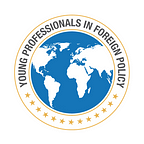Team Effort: Global Institutions and their Role in Ukraine
By Colin Wolfgang
September 1945 signaled the end of the deadliest war in history and ushered in a Western world order. The collapse of the Soviet Union decades later resulted in numerous political scientists positing on “the end of history” and what the future might hold. However, once again, the world is witnessing an unprovoked invasion. This assault will surely be cemented in history and provide a painful reminder that “the end of history,” as Francis Fukuyama coined it, is not quite here.
A brazen invasion
The ongoing war in Ukraine, following months of brazen provocation from neighboring Russia, is but the latest case study of the fragility of peacetime. Now in its second month, the conflict has claimed thousands of civilians’ and soldiers’ lives and has left a trail of destruction that will take generations to rebuild.
It is hard to look at a situation causing human misery and find a silver lining. However, Russia’s invasion into Ukraine has resulted in arguably the last thing Russian President Vladimir Putin would want. Instead of ineffective “red lines,” the inadequate distribution of resources, and the weakening of partnerships, Russia’s gamble on destabilizing the West has backfired.
During the Cold War, proxy battles took place in distant corners of the world and fighting occurred around the ideological and logistical implementation of communism. This type of conflict was the foundation of the “war” between the United States and the former Soviet Union, lasting more than 40 years. The world has organized around this bipolar world. As countries banded together, one of the most significant changes to the world order in the latter half of the 20th century was the global institutions that were founded.
The effect of global institutions
The United Nations, founded in 1945, was the first institution following the end of World War II. While the League of Nations, U.S. President Woodrow Wilson’s brainchild, was unable to function effectively after the end of World War I, the United Nations proved more effective. This organization includes 193 countries and addresses crises on the topics of global health, armed conflict, and human rights.
In contrast, the North Atlantic Treaty Organization (NATO) was established in 1949 as a military alliance in response to the “present threat” of the former Soviet Union. To ensure the collective security of those that participate in the alliance, the organization has an article (Article 5) in its charter explicitly stating that any “attack one of us, attack all of us.”
The European Union came into existence due to the 1993 Maastricht Treaty, which intended to align the economic and, in some cases, cultural identities of European states while conducting business on the world stage. While not all of Europe is part of the European Union (most notably the United Kingdom, which voluntarily left), the EU has gained significant global influence.
Last is the International Criminal Court (ICC), created in 2002. Its creation followed a series of state-led atrocities and increasing scrutiny on leaders that committed war crimes.
However, these institutions could only do so much. The United States has never ratified the Rome Statute or acknowledged the legitimacy of the ICC, Russia now has veto power as a permanent member of the U.N. Security Council, and the United Kingdom’s departure from the European Union has tested the organization’s permanence on the world stage.
International organizations and the Russian invasion
Russia’s intent with their invasion of Ukraine was to weaken these international organizations and for Russia to return to an era of glory once again as the Soviet Union was gradually restored. Moreover, in true “David and Goliath” fashion, Ukraine had roughly 10 percent of Russia’s GDP in 2020, while Russia is twenty-eight times larger than Ukraine and has a population three times larger.
However, Russia’s plan to weaken Western institutions has not come to fruition, and instead, they have worked precisely as intended. Russia’s attack on Ukraine has only strengthened these organizations’ resolve and improved collaboration among Western world leaders.
While, up to this point, diplomatic efforts to end the conflict have not had significant success, it is a testament to Western institutions that countries are quickly joining together in opposition to what is happening in Ukraine. So far, Russian assets have been frozen, military hardware has been provided to Ukraine, and Russia has been effectively cut off from the rest of the world.
Conclusion
It would be a disservice to suggest that the abovementioned institutions are ineffective. On the contrary, multi-state alliances and organizations have been critical in the rapid mobilization of efforts to deal with atrocities and leaders accused of war crimes, such as President Putin. Furthermore, while there is little to celebrate, at least for now, it is worth remembering that these institutions have not succumbed to outside pressure but have grown stronger in the face of adversity.
Colin Wolfgang is a political and communications consultant and the Managing Director of YPFP New York.
